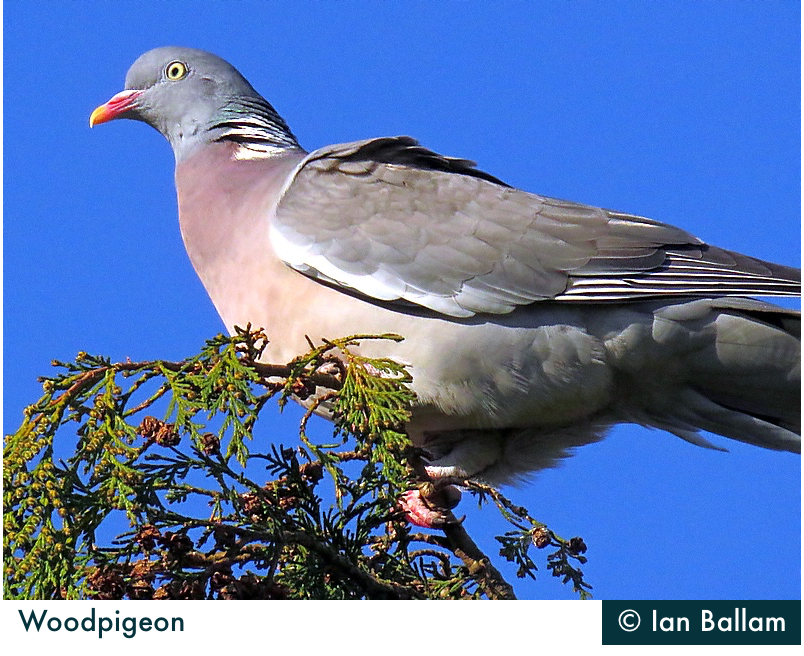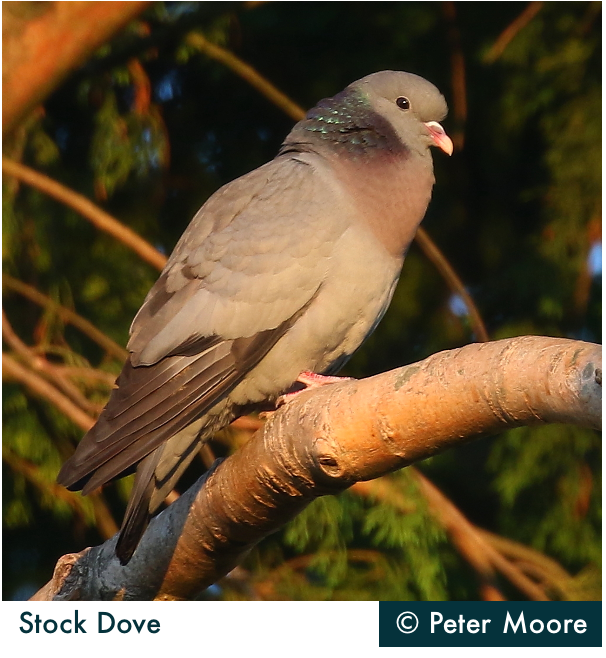Found ubiquitously around the harbour, you would struggle to go a day without encountering the familiar Woodpigeon. However, to truly appreciate the gregarious nature of these plump pigeons you need to witness the autumn passage that takes place every year in early November.

Woodpigeon are a common diurnal (daytime) migrant across much of Europe. Owing to their stocky size, Woodpigeon movements are relatively easy to observe on a crisp November morning in Poole Harbour, and last Wednesday was no different! The first few birds began to move just before sunrise, appearing over Evening Hill, the harbour’s premier Woodpigeon watching vantagepoint. Small numbers began to trickle through with flocks averaging 20, 40 and 100 strong at first, gradually building over the next hour to between 500 and 1,000. But then, 8am saw a notable shift as flocks between 500 to 2,000 individuals began streaming high above the harbour, passing south west over Brownsea Island and Sandbanks.
In the end, we estimated 75,014 passed over Poole Harbour on Wednesday morning, but it is likely high-altitude flocks may have passed through unnoticed, and so actual count is almost definitely higher. A respectable total, but this does not come close to the staggering 161,257(!) Woodpigeon logged over the harbour in a single morning on 7th November 2010.
The spectacle takes place every autumn, but peak passage only lasts a single morning when conditions are perfect, typically falling between November 1st and 10th, coinciding with clear skies and a light north easterly breeze.
Intriguingly, the origin and destination of these passage pigeons remains uncertain. It is assumed these are all UK Woodpigeons that have moved south through the country during the late summer and early Autumn and are departing the south coast, heading down into cork oak forests of Portugal and Spain.
British and Irish breeding Woodpigeons are generally sedentary, so it is unlikely that our local breeding populations are undergoing these migrations. That said, dispersal of first-year birds has been documented in late summer, ranging 30 km on average, before returning to their natal area to breed. Despite many long-distance recoveries on the Continent, ring-recovery data shows only very local movements of birds breeding in Britain to date, and similarly there is little evidence for birds arriving en-masse from Scandinavia. It could be the case that the Woodpigeons observed on the move are from highly migratory northern European populations, but ring-recoveries are lacking to back this up. It seems likely that the majority of these birds are from Fennoscandia and heading for France or Iberia and are not in Britain long enough to be ringed or for any rings that they are carrying to be recovered.
During large movements like this there are often a few Stock Doves hidden amongst the flock so be sure to scrutinise the clouds of passage pigeons. Stock Dove are similar in size and shape to the widespread Feral Pigeon, and so slighter and shorter-tailed than Woodpigeon. These features standout when scanning mixed flocks in flight. At closer quarters, Stock Dove plumage is a smart blue-grey with a flashy green neck patch. Woodpigeon are best distinguished by the large white neck patch and broad white transverse band on upperwings in flight. Note that juvenile Woodpigeons lack the diagnostic white neck patches.

Winds remaining fairly light as we progress into the weekend, however clear spells are looking unlikely and yesterday’s blanket of fog that settled over Poole Harbour north meant big movements never really got going. Evening Hill is the best location for the full Woodpigeon experience in Poole, however passage can be recorded across the harbour area. In recent days, Lytchett Bay has recorded c.2,000 Woodpigeon and Westbourne has logged over 13,000 in a single morning.
Plenty going on today, including multiple sightings of 2 Common Crane which were moving around (mostly at height)…
Find out moreIncredibly windy today, in fact one of the windiest days for a long time. It seemed to keep…
Find out more© 2025 Birds of Poole Harbour Registered Charity No. 1152615